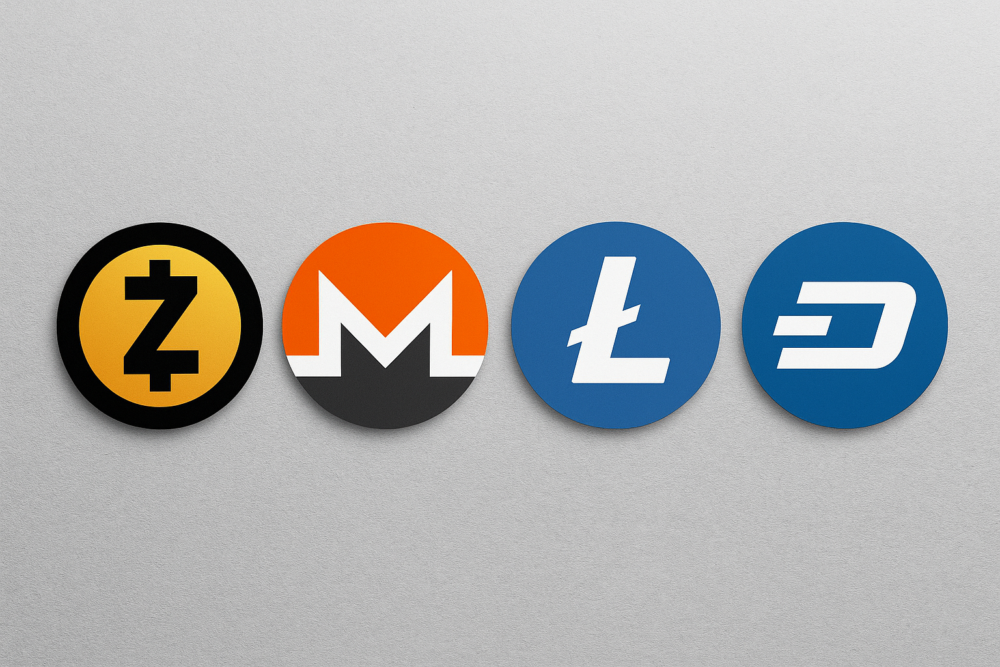As privacy concerns rise amid closer ties between crypto and traditional finance, Zcash is emerging as a renewed alternative to Bitcoin, according to a report from Galaxy Digital (TSE: GLXY) research analyst Will Owens.
Released on Tuesday, the report made the point that although the privacy-focused cryptocurrency remains far smaller than Bitcoin, Zcash is regaining recognition as a kind of spiritual successor to the world’s most valuable digital asset.
Zcash shares Bitcoin’s original codebase, including a 21 million coin supply cap and a proof-of-work consensus model.
However, it also integrates advanced privacy tools such as zero-knowledge proofs, which allow users to “shield” transactions from public view. Owens said this feature appeals to investors who are increasingly wary of on-chain surveillance and Wall Street’s growing presence in the Bitcoin ecosystem.
Since its launch in 2016, Zcash has trailed Bitcoin for much of its history. Still, the token’s recent surge has surprised analysts. Its price has risen nearly tenfold, from about USD$40 to USD$396, over the past two months, reaching a seven-year high in October, according to data from CoinGecko. Owens noted that while Zcash’s underlying technology has not changed, investor perception around its purpose has.
Critics of Bitcoin’s expanding institutional adoption argue that exchange-traded funds are making Bitcoin more centralized by routing exposure through custodians. Owens said ETFs have not made Bitcoin less transparent but have added layers of intermediation. Zcash supporters, on the other hand, often describe the project as “encrypted Bitcoin.”
Read more: Core Scientific votes down merger with AI cloud firm CoreWeave
Read more: Chainalysis CEO warns DeFi platforms face growing security risks
Privacy tools like CoinJoin are under the regulatory microscope
For comparison, Bitcoin’s transparency allows every transaction to be publicly traceable. While that design fosters trust, it also creates privacy limitations that Bitcoin’s creator, Satoshi Nakamoto, once acknowledged. Zcash directly addresses that gap by giving users the option to conduct fully private transactions.
Over the years, some Bitcoin holders have relied on privacy-enhancing tools such as CoinJoin to obscure fund flows. Yet those services have recently faced increasing regulatory scrutiny. Federal prosecutors this week announced they are seeking the maximum sentence for Samourai Wallet founders Keonne Rodriguez and William Lonergan Hill, who pleaded guilty to running an unlicensed money-transmitting business. A month later, another CoinJoin-based service, Wasabi Wallet, banned U.S. users and announced plans to close its privacy functions.
Owens said the decline of these privacy tools has pushed more attention toward Zcash. The coin’s ability to provide encryption at the protocol level, rather than through add-on software, gives it a compliance advantage. Furthermore, Zcash’s privacy becomes stronger as more users adopt its shielded transactions, because they expand the shared anonymity pool.
The growing discussion around privacy has also attracted vocal support from leading figures in crypto. Among them is Mert Mumtaz, CEO of Solana infrastructure firm Helius Labs, who praised privacy-oriented technologies for improving blockchain systems.
Zcash now stands as the largest privacy coin by market capitalization at about USD$6.5 billion. Its closest rivals are Monero and Litecoin, both valued around USD$6.4 billion. Meanwhile, the rally has revived investor interest across the broader privacy sector, with Dash up 162 per cent to USD$122 and Decred climbing 139 per cent to USD$41 over the past week.
.














